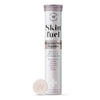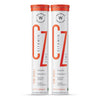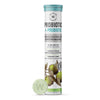The process of aging is an inevitable part of life that impacts all living organisms, ranging from mammals and plants to even insects. As one grows older, the once radiant skin loses its luster, wrinkles emerge, bones become weaker, and numerous other undesirable changes occur. These symptoms tend to be commonly observed at a certain age. However, when these signs manifest at a much earlier stage in life, it is known as premature aging. Unlike normal aging, premature aging can often be prevented. To gain a comprehensive understanding of premature aging, including its causes, preventable measures, and more, keep scrolling.
Signs of Premature Aging
Although there’s no evidence to prove this, it’s believed that premature aging commonly occurs after the age of 40. But the truth is that it can happen anytime during adulthood. In fact, aging begins in your 20s, when collagen production starts reducing gradually. But you won’t notice any symptoms right from the beginning. After a few years, your body will start showing visible signs of aging. If you see these indicators earlier, you can act quickly to prevent premature aging. So here are some signs of aging that you should look for:
- The skin exhibits the most prevalent and apparent indications of aging. You might notice wrinkles in the corner of your eyes, dry and dehydrated skin, skin sagging, sunken cheeks, and uneven skin tone.
- Hyperpigmentation is also a common sign of aging especially around your chest.
- You might find it difficult to see, hear, and retain information.
- Hair loss, balding, and greying of the hair are some signs of premature aging you can spot on your scalp and hair.
- Premature aging can also affect your digestive system due to disbalance in the gut microbiota, causing issues like constipation, diarrhea, heartburn, bloating, etc.
What Could Accelerate the Aging Process?
1. Changes in the Skin
Your body is constantly changing as it grows older, and so is the skin. This is called intrinsic aging or chronological aging and is a very normal and inescapable process. If these changes occur sooner than expected, they can cause premature aging. Most of the time, extrinsic factors like sun exposure and pollution are to blame for causing these intrinsic changes.Some of the changes that occur in your skin as you age are:
-
Fewer keratinocytes & more corneocytes
The outermost layer of the epidermis is called the corneum and contains corneocytes. These are cells that are discarded by the body during epidermal turnover. These cells are what we commonly call "dead cells". There are other types of skin cells present under the corneum layer, like the keratinocytes, which produce keratin. These cells are present in the hair follicle bulge region and sebaceous glands. Keratinocytes present in the hair follicles are responsible for the hair regeneration cycle, while those present in the sebaceous gland release oil to keep your skin moisturised.
As we age, epidermal turnover slows down, thus accumulating a huge amount of dead cells (corneocytes) on the outer layer of our skin. As a result, there are fewer keratinocytes, which are necessary for moisture and plump skin, and more corneocytes, which increase the dead skin layer on the epidermis.
-
Less melanin production
-
Reduced water binding capacity
-
Reduced collagen production
-
Reduced hyaluronic acid production
-
Increased rigidity
Those plump, apple-shaped cheeks that give a youthful look to your face are thanks to a fat layer present below your dermis (middle layer) called the subcutaneous fat. The proportion of fat in our body increases until we turn 70, but the way this fat is distributed differs. As your skin ages, your thighs, waist, and belly retain more fat than your skin, in order to preserve your important organs.
2. Excessive Sun Exposure
Photoaging, or extrinsic ageing, is a phenomenon that is caused by excessive UV light exposure. This is the biggest contributing factor to premature aging. Around 90% of visible skin changes are a result of photoaging. It is a cumulative consequence of all the time your skin has been exposed to the sun throughout your lifetime.
There are two types of UV light that affect your skin: UVA and UVB. UVA has longer rays that cause aging, while UVB is shorter and mostly responsible for sunburns. UVA rays pass through the epidermis and to the dermis, where they damage the collagen fibres, resulting in the formation of an enzyme called metalloproteinases. These enzymes hamper the skin-rebuilding process. Incorrect skin rebuilding leads to the formation of wrinkles on your skin.
Both of these UV rays increase the free radicals in your skin, causing issues like hyperpigmentation and cell damage.
The good thing about photoaging is that it can be prevented by taking the right measures, but are we forgetting about another hazardous light? Sunlight is visible to the eyes, but blue light is invisible. It's the light that’s emitted from your smartphones and other devices. Unlike UV light, which is known to cause skin cancer, blue light isn’t fatal. But it has been shown to reduce skin elasticity by breaking down collagen in the dermis.
3. Stress
Chronic stress, whether it is due to your work or personal life, can lead to several diseases, including high blood pressure and premature aging. Over time, excessive stress can cause DNA damage, which contributes considerably to aging.
Your body perceives psychological stress as a threat; hence, it produces more cytokines—proteins that trigger inflammatory reactions as part of the immune response. An overabundance of cytokines in the body, known as a cytokine storm, can lead to increased oxidative stress and inflammation (aging that results from increased inflammation).
Stress-related inflammation has also been shown to cause age-related mental issues including Alzheimer’s disease.
Another way in which stress can contribute to premature aging is by increasing cortisol levels in the body. Cortisol is a stress hormone, and when you are stressed, this hormone is released. Increased cortisol levels are associated with cognitive decline and degeneration of memory related areas of the brain, like the hippocampus.
4. Nutrition
Your diet plays a vital role in the way you look on the outside and how you feel on the inside. For example, your body loses collagen by 1–1.5% every year starting at the age of 20. So by the time you turn 40, your body is already producing 20–25 percent less collagen than it was earlier. This is where your nutrition comes into play. The rest of your body’s requirement for collagen should be covered by your diet so that your skin remains healthy and happy. The same logic goes for hyaluronic acid, antioxidants, vitamin D, and other nutrients required for healthy skin, hair, and bones.
Additionally, unhealthy eating habits like eating too much sugar can also speed up your aging process. Your skin retains its elasticity and plumpness thanks to the collagen and elastin present in it. Sugar causes cross-linking of collagen, resulting in loose and stiff skin.
5. Sleep Deprivation
A study conducted by the University Hospital (UH) Case Medical Center with a sample of 60 premenopausal women in the age group 30-49 revealed that poor-quality sleepers had poorer skin recovery than good-quality sleepers.When you sleep, your body repairs itself, stores energy, and eliminates any toxins. To meet the requirement for energy during the day, your body releases cortisol and adrenaline. When you sleep, these hormone levels decrease, and healthy hormones like growth hormones are created to support muscle development, healing, and repair.
The study reported the following things:
- Poor-quality sleepers showed increased signs of intrinsic aging like fine lines, wrinkles, uneven skin tone, etc.
- Good-quality sleepers recovered faster from stressors to the skin than their counterparts.
- Sunburn recovery was slower in poor-quality sleepers.
- Poor-quality sleepers showed slower relief from inflammation.
In a nutshell, poor sleep quality slows down your recovery process and accelerates aging.
6. Genetics
At the end of the day, it all comes down to our genes. We are the way we are because of our genetic composition. For example, in some cases, early balding runs in the family. It’s an example of how genetics can lead to premature aging.
Additionally, there is a class of inherited diseases known as progerias that manifest premature aging symptoms, including grey hair, atherosclerosis, hyperlipidemia, dementia, etc.
7. Air Pollution
Other than the sun, another environmental factor that speeds up aging is air pollution. Particulate matter includes tiny particles in the air from manufacturing facilities, fires, cars, power plants, and other sources. In places with high levels of PM2.5 (particulate matter with a diameter of 2.5 micrometers or less), air pollution has been demonstrated to promote the aging process.
8. Smoking
You must be aware of the harmful effects of tobacco smoking on the lungs, but did you know smoking can also lead to premature aging? It has been demonstrated that smoking causes the skin to age prematurely and causes symptoms like wrinkles.
Role of Nutrition Supplements in Preventing Premature Aging
Besides macronutrients like carbohydrates, protein, and fibers we also need micronutrients (vitamins and minerals) to ensure that your body has everything it needs to function properly. If you have a balanced diet with enough fruits, vegetables, and dairy products, you should be able to satisfy most of your nutritional needs. However, as your body ages, the ability of your gut to digest and absorb nutrients reduces.
With premature aging, a lack of absorption of nutrients happens early in life. The 30s and 40s are an age when you are working every day and need your body to support you. Nutrient deficiencies at this age can become a big obstacle and cause symptoms of premature aging like less energy, weak immunity, reduced bone and muscle strength, etc.
This is why anyone who is experiencing signs of aging way early in their life should consider natural supplements to fulfill their nutrition requirements. Supplements give your body the required nutrients in a readily available form, so your digestive system doesn’t have to put in the effort of breaking down large pieces of food to absorb nutrients.
Some nutrients you should consider to prevent premature aging:
-
Collagen
-
Hyaluronic Acid
Hyaluronic acid is a gooey substance produced by your body to retain water in your tissues to keep them well-lubricated, moist, and plump. It is present in your eyes, skin, and connective tissues. Hyaluronic acid is also produced less with age, resulting in dull, dehydrated skin.
The best way to improve skin health is by giving it enough water. 1 gram of hyaluronic acid can bind up to 6 liters of water. Hyaluronic acid is available in the form of serums and oral supplements. Even though serums have the capability to give good results, they are only able to reach the first few layers of the skin. Oral supplements supply hyaluronic acid to every part of the body where it’s needed, thus helping you improve your vision, bone joint lubrication, and skin health.
-
Protein
When your muscles get older, you lack strength and energy and might even have problems conducting regular daily activities. Protein supplements are even more necessary for an aging body than a younger one. It helps prevent or treat loss of muscle function.
Try having protein powder every day to ensure proper muscle buildup. You could also look for plant proteins that give you all nine essential amino acids entirely from plant sources.
-
Antioxidants
-
Vitamin B complex
-
Vitamin D and K
-
Probiotics and Prebiotics
Age-induced gut microbiota imbalances can be restored using probiotics and prebiotics. The former adds strains to your gut flora to impart health benefits, while the latter helps the gut bacteria survive longer.
Other Ways to Keep Pre-mature Aging at Bay
Besides supplements, there are a few other things that you can do to prevent premature aging:
- Avoid going in the sun without using sunscreen. Also, while choosing your sunscreen, make sure you choose one with SPF 30 (or higher) and a broad-spectrum formula to give you protection from both UVA and UVB lights.
- Try to quit smoking. It has been shown to speed up the aging process.
- Exercising every day improves your heart health, muscle power, immunity, and bone strength.
- Have a good night’s sleep to combat signs of premature aging.
- Cleanse your skin daily and moisturize it with a suitable moisturizer.
- Wear anti-UV sunglasses to protect your eyes from the harmful effects of UV light.
- Go out in the sun in the morning to fulfill your body’s vitamin D requirements.
Wrapping Up
Premature aging is a concern you should look out for, not because it will make you look older but because it will also make your body weaker and more susceptible to diseases. Fortunately, unlike normal aging, premature aging is preventable if you take proper measures, follow a healthy lifestyle, and supply your body with nutrition supplements.
References:
https://www.ncbi.nlm.nih.gov/pmc/articles/PMC3840548/
https://www.skincancer.org/blog/photoaging-what-you-need-to-know/
https://www.ncbi.nlm.nih.gov/pmc/articles/PMC7230126/































 DOWNLOAD NOW
DOWNLOAD NOW
